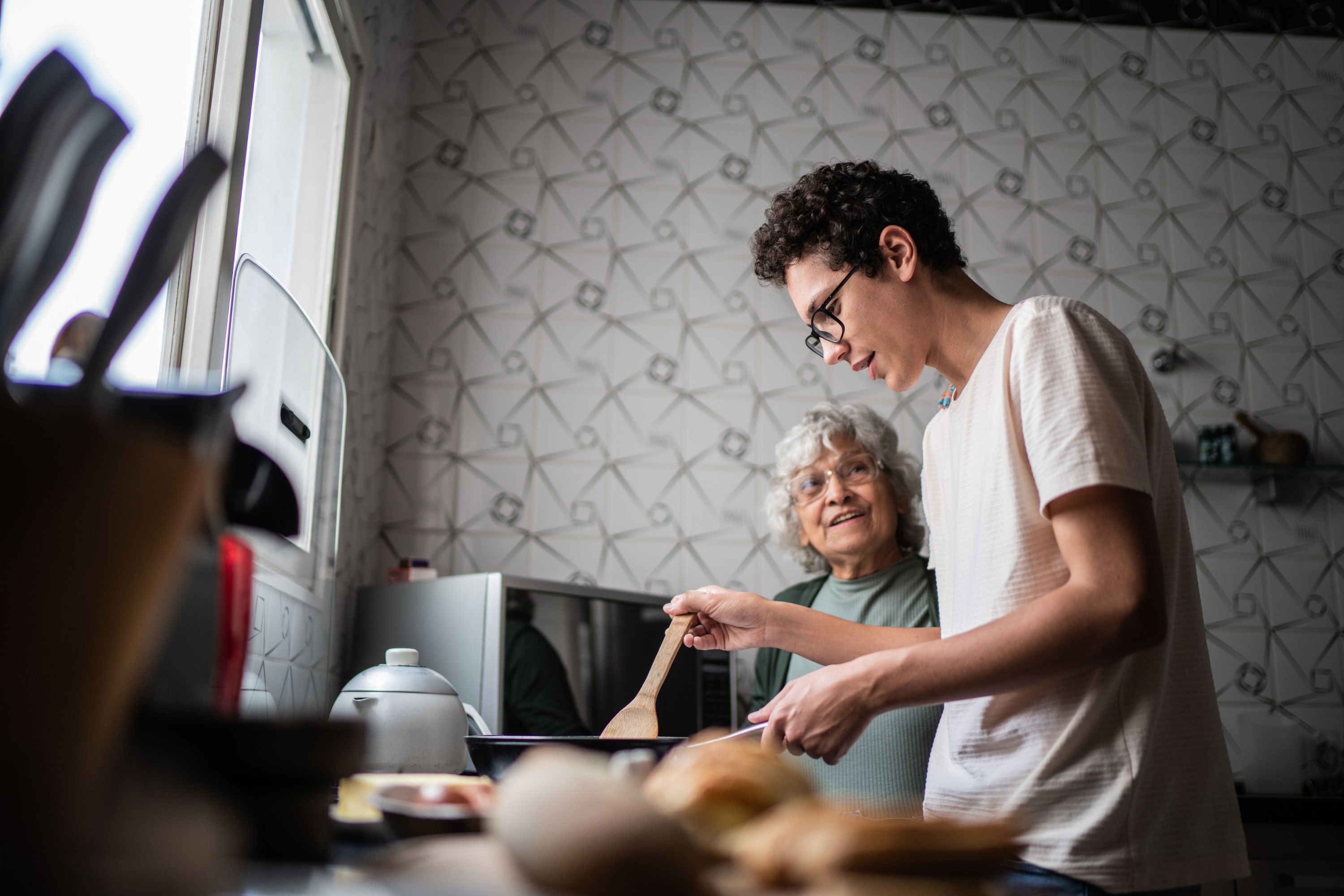Losing a grandmother can impact teenage boys' mental health for as long as 7 years, research shows - here's how you can support them
Grandparents' involvement in their grandchildren's lives can have an impact on their health and wellbeing


Losing a grandparent can be devastating, and research has found that the death of a grandmother can have severe and lasting mental health consequences for both her adult children and grandchildren.
The bond between grandparents and their grandkids is a special one, and it's important too. In fact, new research has revealed that children who have a good relationship with their grandparents have less behavioural and emotional problems. With grandparents' involvement and support being so beneficial for both their children and their grandchildren, it may not come as a surprise that their death can have lasting mental health consequences. And research published in the scientific journal SSM - Mental Health has found this to be particularly the case following the death of a grandmother.
The researchers interviewed a sample of mothers and their adolescent children to analyse whether a maternal grandparent’s death during later childhood or early adolescence affected adolescents' or their mothers' depressive symptoms.
The findings suggested that following a grandmother’s death, adult daughters were more likely to become depressed relative to other women, and they experienced this increase in depression for up to seven years afterwards. Meanwhile, adolescent boys who had lost their grandmother in the past seven years also had higher depressive symptoms than their peers. However, the study found no statistically significant increase in depression following a grandfather’s death.
While the researchers were unsure as to why the loss of a grandmother seems to have deeper and longer-lasting effects than that of a grandfather, they do suggest a reason why teenage boys are uniquely vulnerable after such a loss.
They said: "Gender socialisation could explain boys’ higher depressive symptoms after a grandmother’s death. Adolescent boys may feel pressure to internalise their emotions."
The study was motivated by the effects of the COVID-19 pandemic, which left millions of children and adolescents grieving the sudden death of a grandparent. And while it's true that, in general, adolescent mental health has worsened in the years since the pandemic (an NHS England survey found rates of probable mental disorder in children aged seven to 16 increased from 12.1 per cent in 2017 to 18 per cent in 2022), the researchers note that "the mental health effects of losing a loved one to COVID-19 have been curiously overlooked."
GoodtoKnow Newsletter
Parenting advice, hot topics, best buys and family finance tips delivered straight to your inbox.
They added, "Our findings underline the pressing need for adolescents and their parents to have access to support services as they navigate the cascading consequences that such a loss can set in motion".

How to help a child cope with grief
Mental health charity Young Minds has shared some tips for supporting a child or young person following a sudden death. They advise, "In the days and weeks after a sudden death, the most important thing you can do is provide safety and support."
- Hold and reassure them: Wrap your arms around them and tell them how much you love them. Let them know they’re not alone and you’re here for them.
- Tell the people who need to know: Tell everyone who needs to know what’s happened, including someone at their school.
- Help them meet their basic needs: Guide them through daily things like eating (even if it’s something small), drinking water, washing, keeping warm and getting some sleep.
- Take care of their normal responsibilities: Let them continue with things like feeding and walking pets if they’d like to. But make sure they know they don’t have to do these things right now.
- Gently offer opportunities to talk: Create space for them to start talking when they’re ready, letting them speak as often and for as long as they need to.
In related news, research has revealed mothers are less likely to struggle with their mental health if their kids’ grandparents live close by, while it turns out grandparents are likely to live for longer if their children have kids later in life. Elsewhere, new research has shown more than half of grandparents look after their grandchildren while their parents are at work - and who's most likely to help out.

Ellie is GoodtoKnow’s Family News Editor and covers all the latest trends in the parenting world - from relationship advice and baby names to wellbeing and self-care ideas for busy mums. Ellie is also an NCTJ-qualified journalist and has a distinction in MA Magazine Journalism from Nottingham Trent University and a first-class degree in Journalism from Cardiff University. Previously, Ellie has worked with BBC Good Food, The Big Issue, and the Nottingham Post, as well as freelancing as an arts and entertainment writer alongside her studies. When she’s not got her nose in a book, you’ll probably find Ellie jogging around her local park, indulging in an insta-worthy restaurant, or watching Netflix’s newest true crime documentary.